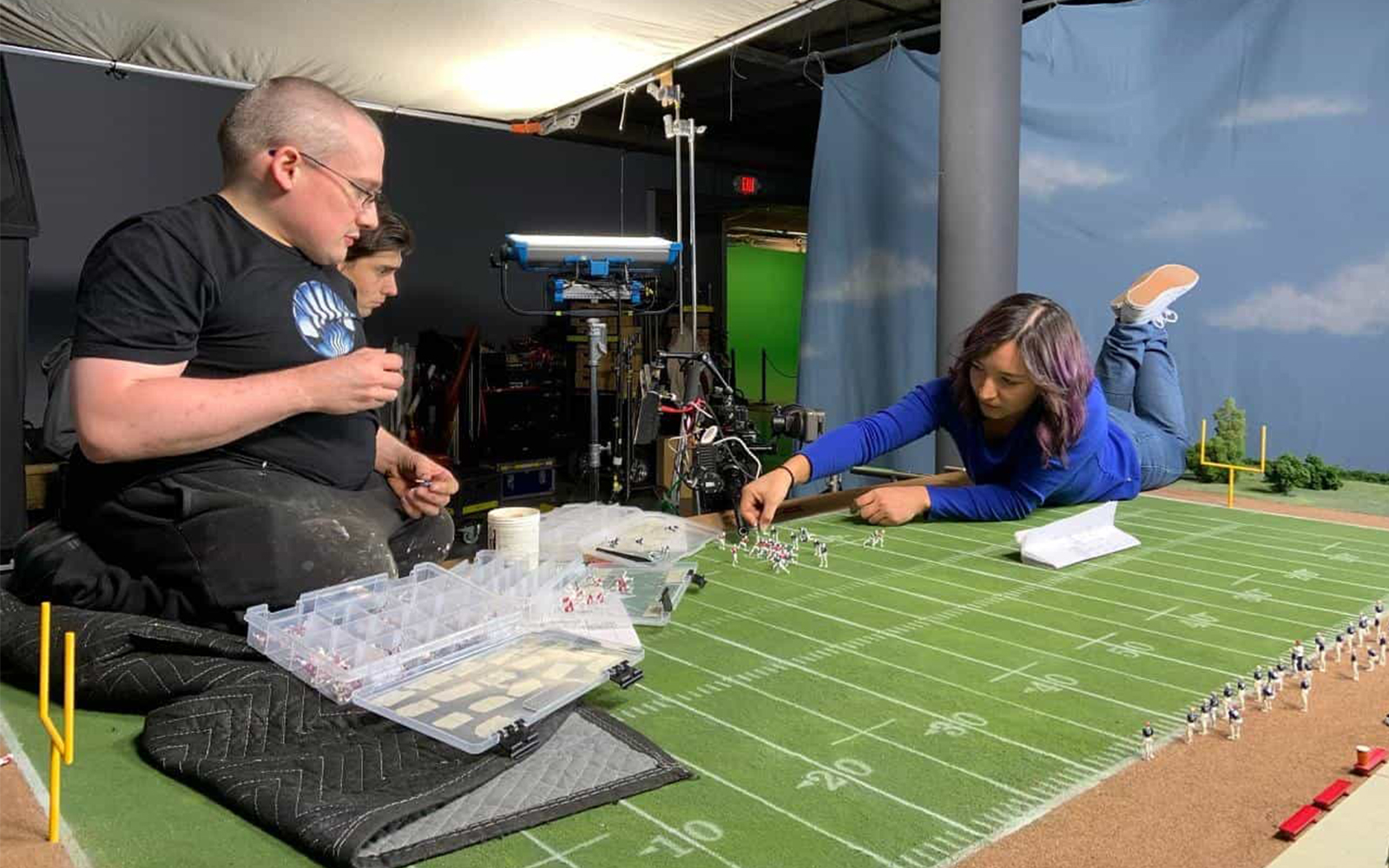Olivia Kuan is a filmmaker and director of the documentary film The Herricanes featuring the Houston Herricanes, a professional women’s full-tackle football team that played in the 1970s. Olivia, with the help of her mother who played on the team, tracked down the former players and coaches of the Houston Herricanes to tell their story, which Olivia would later call “a love story.” The Herricanes received the Documentary Spotlight Audience Award and the Special Jury Recognition Louis Black “Lone Star” Award at the 2023 South by Southwest Film Festival.
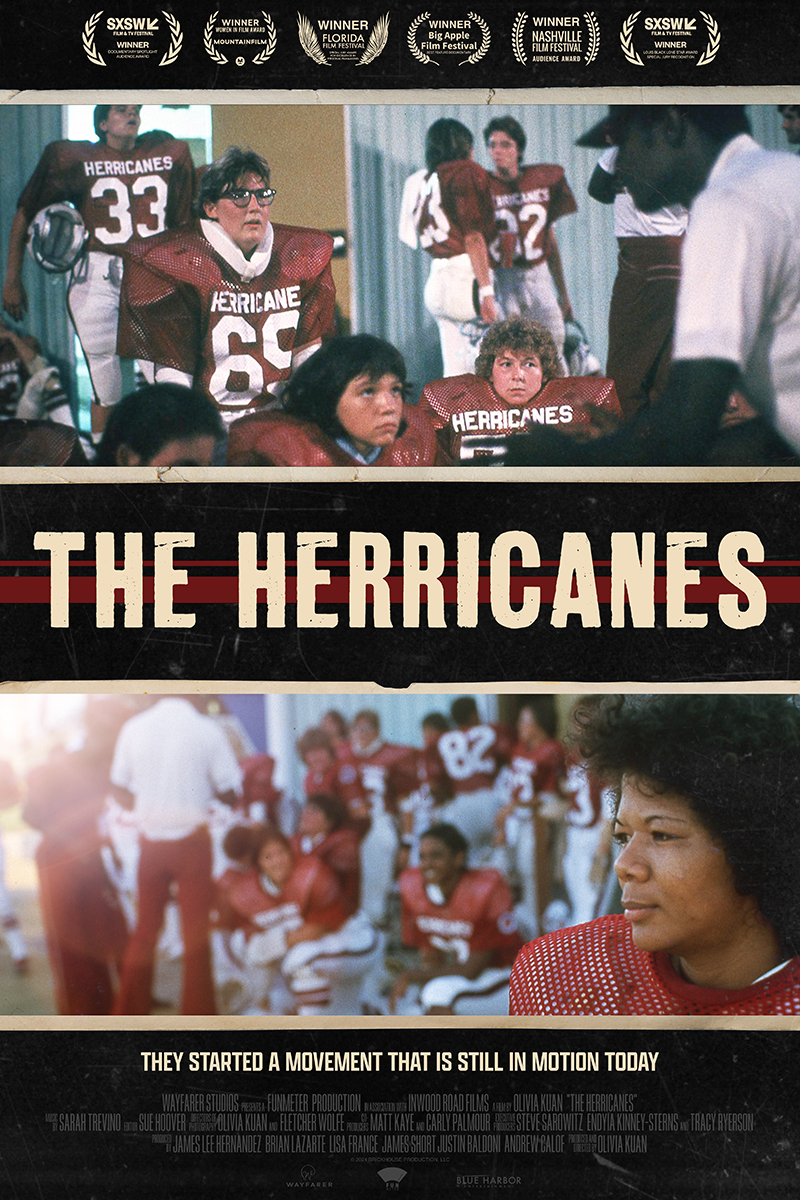
The Herricanes documentary film poster; image courtesy of Olivia Kuan.
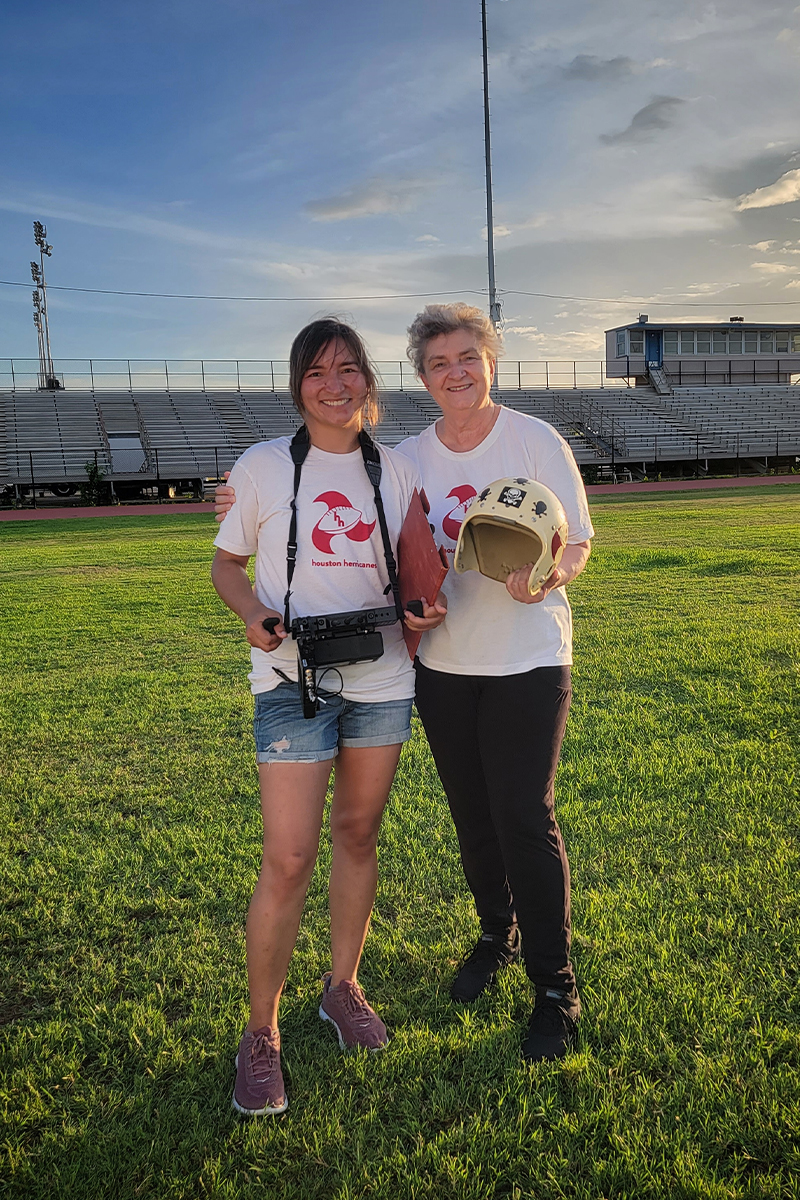
Olivia and her mother, Basia Haszlakiewicz of the Houston Herricanes, on the set of the recreations of the football games for the film; photography by James Lee Hernandez.
What did you learn about leadership through the process of directing The Herricanes?
From the very beginning, I considered the women of the Herricanes to be trailblazers. To me it was obvious. They did something that no one had ever done before at a time when the women’s sports movement was getting started. But to my surprise, they did not see themselves that way. I interviewed them and each and every one of them pushed back at the suggestion that they were revolutionaries. Their response was, almost unanimously, that they just wanted to play football. I struggled with this for the several years that it took to make The Herricanes documentary. I wanted to be true to the players and their version of the story. But I could not shake my perspective that what they did was groundbreaking.
Eventually, I came to the realization that both can be true at the same time. Through the lens of the present, we can reexamine the past. While the Herricanes may not have intended to be a part of a movement and would have had no reason to believe, in the 1970s, that what they were doing was impactful, they accomplished both these things. This lesson for me was that leadership doesn’t always come from ambition. A leader can be anyone who turns a dream into reality.
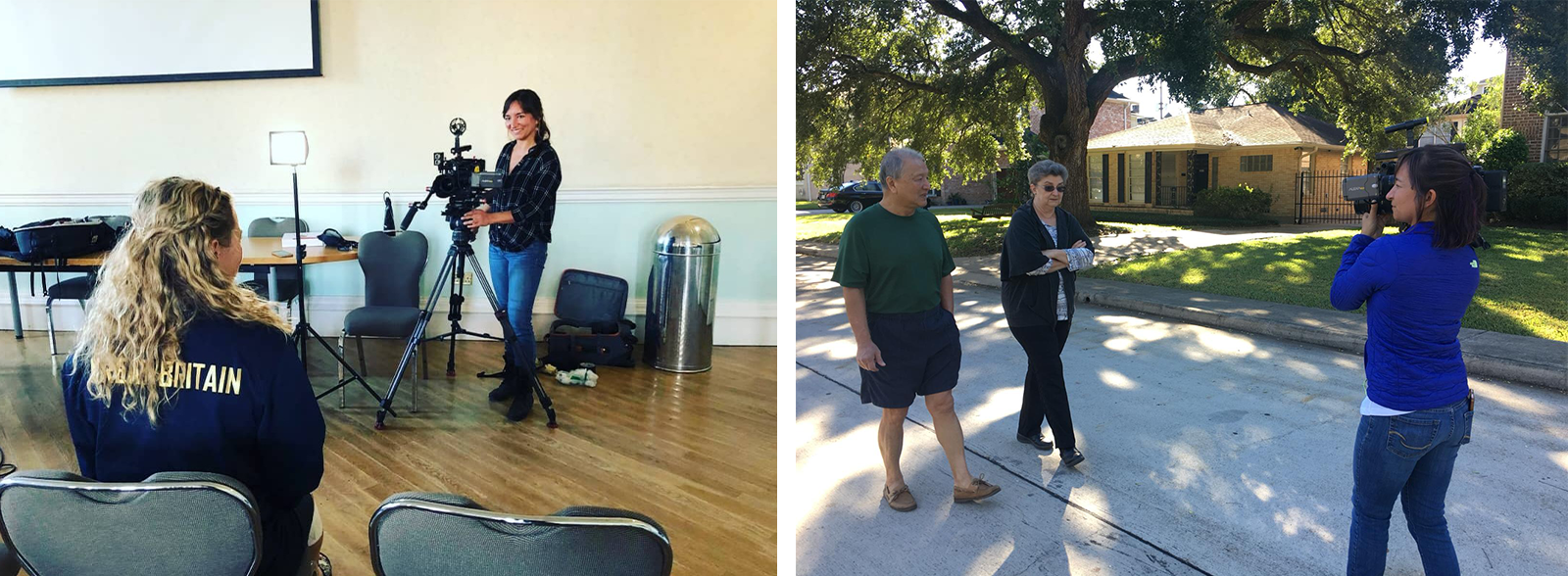
In a story full of challenges, how did you capture the fun, passion, and camaraderie that the Herricanes shared as a team?
I have always claimed that this film is a love story. It’s about an unlikely sisterhood that shares a common love for a game. The challenges they faced were ever present, but they persisted despite it all. When interviewing the Herricanes, their memories were mostly of the good times. They love talking about the big plays, the jokes from the sidelines, and the silly locker room moments. If anything, it was a challenge to get them to open up about the difficult moments. Keep in mind that these women are some of the toughest people you’ll ever meet. After the interviews were complete, we hosted the reunion and for me, it was a dream come true. The players, who hadn’t seen each other in 40 years, were together once again. They laughed, hugged, and danced as though not a day had passed. At that moment, I knew that my thesis had been proven. This is a love story. As the years went on and I had to face my own challenges in making the film, I would reassure myself in the hard times that even if the film were to completely fall apart, it was still all worth it for the sake of reuniting the Herricanes.
This lesson for me was that leadership doesn’t always come from ambition. A leader can be anyone who turns a dream into reality.
What roles do courage and vulnerability play in your work?
The process of putting oneself on camera requires vulnerability and the courage to overcome that. I’m very grateful that so many of the original Herricanes players were willing to participate in this film despite those challenges. I got a taste of this same vulnerability later on in the film. I had originally set out to be a silent filmmaker. I wanted the Herricanes to drive their own story. But as we were building the framework of the film, it became clear that part of what makes this film interesting is that it is being made by one of the players’ daughters. My team of amazing producers were persistently pushing me to add my voice to the film. I resisted vehemently for a very long time. But ultimately, they convinced me to allow myself to be vulnerable and to pony up the courage to give it a try. It felt like a risk, but it worked. And now the more I teach myself to be comfortable with the uncomfortable, the more I’m able to grow as a filmmaker.
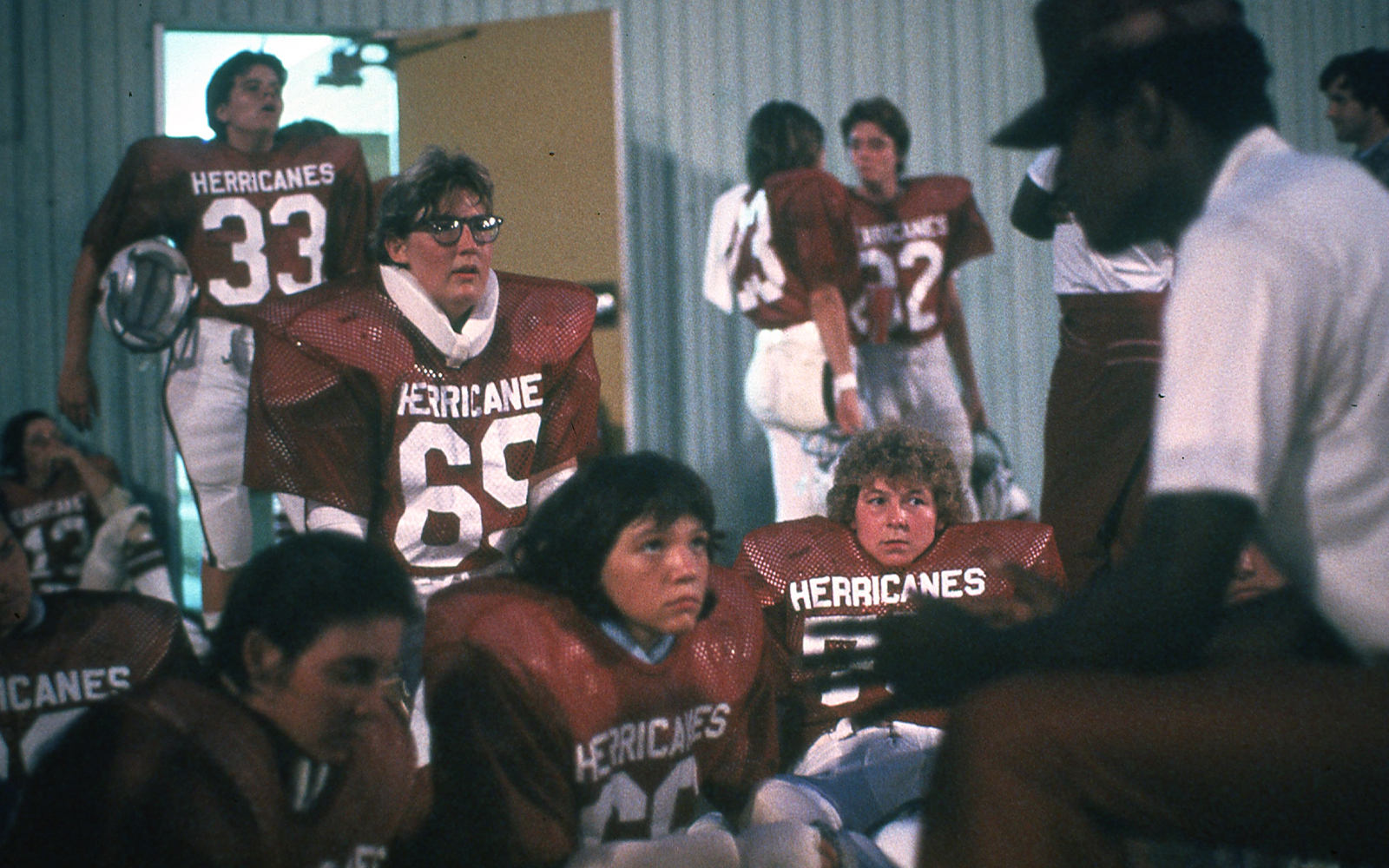
How do you see the Herricanes’ story and their sense of belonging contributing to the broader conversation about inclusivity in sports?
We are currently experiencing a rise in popularity for women’s sports. Games like soccer and basketball are operating at a higher level than ever before. But football has not been included in the women’s sports movement until very recently. While I was growing up, I would mention to my classmates that my mom played football. They were usually so indoctrinated with the idea that football is a man’s sport that they had trouble believing that women’s football existed. As Dr. Jen Welter says, football is the final frontier for women in sports. It’s the one sport that doesn’t have parity at any level. So amidst the excitement for all that is being achieved, we must acknowledge that we still have lots of room to grow. Studies have shown that participation in team sports builds character and sets people up for leadership roles. If we can empower more than half of the population to explore the most popular game in the country, the benefits could be immeasurable.
And now the more I teach myself to be comfortable with the uncomfortable, the more I’m able to grow as a filmmaker.
What was one of the most joyful or unexpected moments of storytelling you experienced while creating The Herricanes? Did anything happen during filming that made you think, “This is why I love doing this”?
There is one behind-the-scenes fact that I like to talk about. When we shot the recreations of the football games, we did so with the participation of the Houston Energy, the current women’s football team in Houston. So the players of today were portraying the Herricanes. It made practical sense to do it this way. We wanted women who were skilled football players to do justice to the game. But I mostly like bringing it up for poetic reasons. It gives me goosebumps knowing that over the course of decades, these generations of athletes can be connected in this way.
